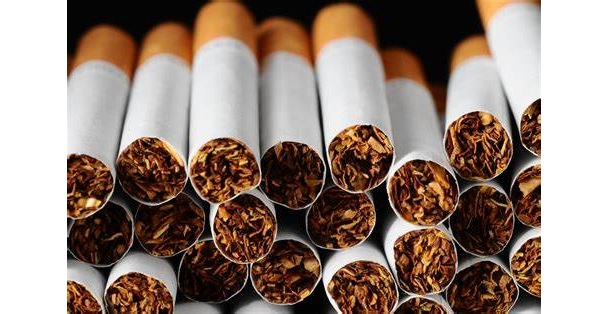The prevalence of tobacco consumption across the globe keeps increasing. Nigeria is not left out as many people use tobacco products, whether cigarettes or snuff, across the country. With tobacco being responsible for substantial health and economic burden, you may wonder if it is legal in Nigeria. In this article, we will be discussing if tobacco is legal in Nigeria. Read on.

-
Is Tobacco Legal In Nigeria?
Yes, tobacco is legal in Nigeria. However, some enacted tobacco control laws impose restrictions on users, retailers, and manufacturers of tobacco products in the country. These tobacco control laws restrict smoking to designated areas, regulate specified contents of cigarettes, and prohibit the sale of tobacco products to minors, among other control measures we would discuss in this article.
-
What are the Tobacco Control Laws in Nigeria?
Although the use, sale and production of tobacco products are legal in Nigeria, there are several enacted legislations put in place to control the use, sale, packaging and promotion of tobacco products. Below is the list of enacted legislation on tobacco control in Nigeria to date:
- Tobacco Smoking (Control) Decree (No. 20) 1990
- Tobacco Smoking (Control) Act (1990, No. 20)
- A Law to Prohibit the Advertisement of Cigarette and Other Tobacco-Related Products (2002, No. 4)
- Nigerian Industrial Standard (NIS) 463:2008, Standard for Tobacco and Tobacco Products – Specifications for Cigarettes (2014)
- National Industrial Tobacco Control Act 2015
- Nigerian Industrial Standard (NIS) 463:2018, Standard for Tobacco and Tobacco Products – Specifications for Cigarettes 2018
- National Tobacco Control Regulations 2019
Nigeria, on January 18, 2006, became a party to the World Health Organization’s Framework Convention on Tobacco Control.
-
What Restrictions Do Tobacco Control Laws in Nigeria Place on Users, Retailers and Manufacturers of Tobacco Products?
The Tobacco Control laws in Nigeria impose some restrictions on the use of, sale, packaging and labelling, and advertising of tobacco products in the country. As you read on, you’d learn how these tobacco control laws impact the use, sale and advertisement, etc of tobacco products in Nigeria.
-
Designation of Smoke-Free Places in Nigeria
One of the aspects of tobacco control in Nigeria is the regulation of where smoking is allowed and areas where it is prohibited. According to the National Tobacco Control Act of 2015, smoking is prohibited on public transport, in restaurants and bars where food and drinks are served and consumed, in playgrounds, and amusement parks.
In indoor public places and workplaces, smoking is restricted to designated smoking areas. In situations whereby an enclosed public space or workplace cannot designate areas for smoking, smoking in such indoor spaces is prohibited. Furthermore, the 2019 National Tobacco Control Regulations impose additional constraints on the placement, operation, and construction of designated smoking areas across the country.
-
Restrictions on Advertising, Promotion and Sponsorship of Tobacco Products in Nigeria
The enacted tobacco control laws in Nigeria prohibit the advertisement and promotion of tobacco products across the country. The only exception that tobacco manufacturers and retailers can advertise and promote tobacco products in Nigeria is when the audience is consenting adults. That’s why there are no adverts and promotions of tobacco products on billboards, radio stations and television stations across Nigeria.
Also, the tobacco control laws of the country impose restrictions on how tobacco manufacturers and retailers carry out sponsorships for tobacco products in Nigeria. However, tobacco sponsorship targeted at consenting adults is permitted.
-
Sales Restriction on Tobacco Products in Nigeria
There are several sale restrictions imposed on tobacco products by enacted tobacco control laws in Nigeria. One such prohibition is that tobacco products be not sold to persons who are not up to 18 years of age. Also, the law forbids the sale of tobacco products via the internet and social media platforms.
The law also prohibits the sale of single cigarettes and small packets of cigarettes. Furthermore, the sale of tobacco products such as cigarettes, via sending machines is forbidden in Nigeria.
-
Tobacco Products Disclosure
Another aspect that tobacco control laws regulate tobacco products in Nigeria is in specifying that manufacturers and importers of cigarettes disclose the contents and emissions of their products to the relevant government authorities.
-
Packaging and Labelling of Tobacco Products in Nigeria
Every manufacturer or importer of tobacco products in Nigeria is expected to adhere to the strict packaging and labelling guidelines as specified by the tobacco control laws. The guidelines specify that 50% of the principal display areas of tobacco product packings should have combined picture and text health warnings.
Furthermore, there are two Nigerian Industrial Standards that regulate the content and required disclosure of tobacco products in Nigeria. Smoked tobacco products are regulated by the NIS 463: 2018 while smokeless tobacco products are regulated by NIS 1031:2018. If you are a tobacco user, you would want to look out for these NIS codes on the packings of the tobacco product you consume.
By next year, that’s 2024, the compulsory picture and text health warnings would cover 60% of the principal display areas of tobacco product packets. Also, by 2024, misleading packaging and labelling, including terms such as “light” and “low tar” would be prohibited.
The most recent tobacco control legislation in Nigeria, which is the National Tobacco Control Regulations, 2019, has built upon the achievements of the National Tobacco Control Act, of 2015. The National Tobacco Control Regulations of 2019 implemented many provisions of the National Tobacco Control Act of 2015, especially in areas of tobacco advertising, promotion and sponsorship, tobacco packaging and labelling and the prevention of interference by the tobacco industry. Although there is adherence to smoking in designated areas in indoor public spaces and workplaces, parks, and other public gathering places in some places, there have been reports, even carried by national dailies, of non-adherence to smoke-free places in some parts of the country. Sadly, defaulters are hardly persecuted.